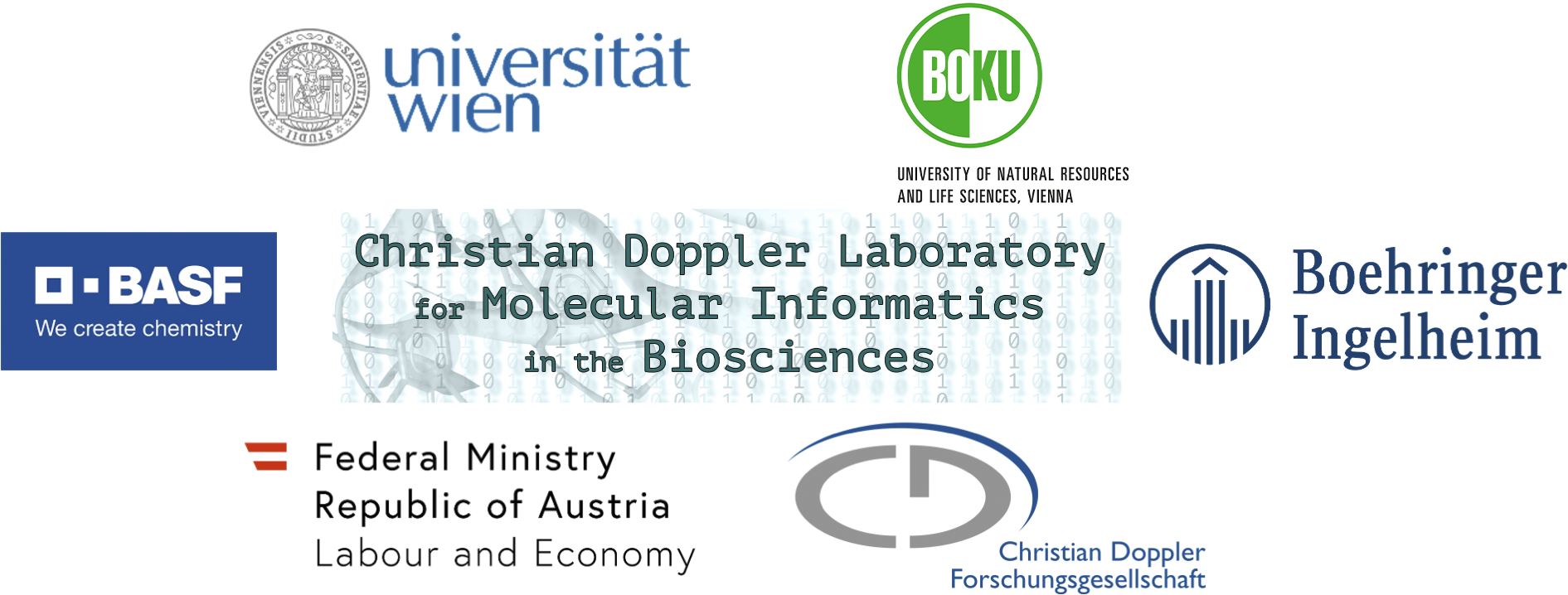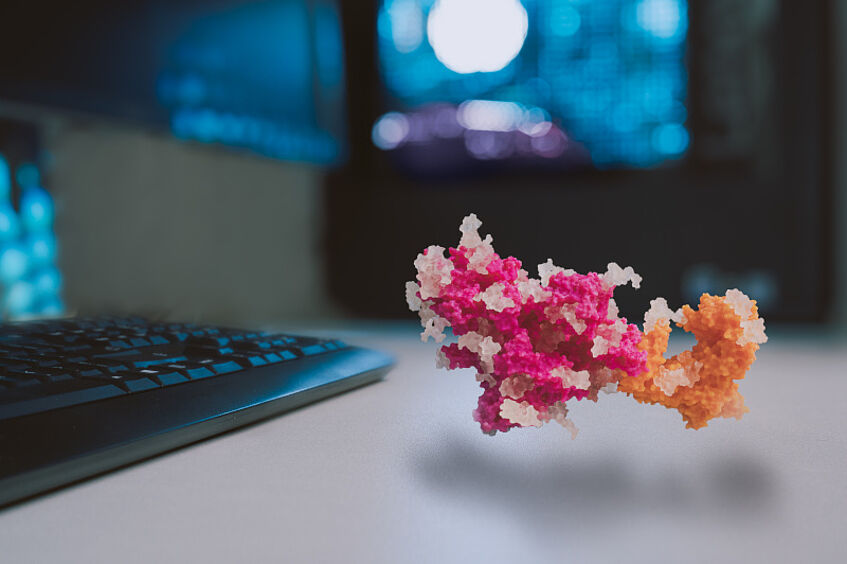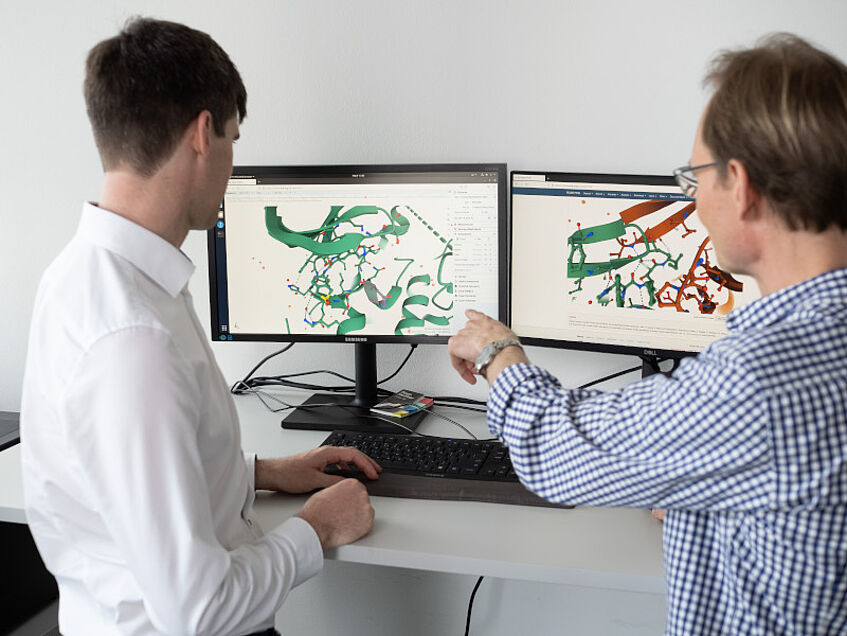
The Christian Doppler Laboratory for Molecular Informatics in the Biosciences (CD-Lab MIB) was opened in December 2022. In the CD-Lab MIB, at Department of Pharmaceutical Sciences of the University of Vienna, innovative cheminformatics and machine learning methods will be developed for modern drug discovery. In parallel, scientists at the University of Natural Resources and Life Sciences Vienna (BOKU) are researching simulation methods for molecular structure-based processes. Thus, experts from biology, chemistry, pharmacy and computational sciences work together in an interdisciplinary way. Corporate partners from industry are BASF SE and Boehringer Ingelheim RCV. The most important public funding source is the Federal Ministry of Labor and Economics of the Republic of Austria (BMAW) and the Christian Doppler Forschungsgesellschaft.

3D model of a protein. © cloningcompany.at

Johannes Kirchmair (head of the CD-Lab MIB, left) and Chris Oostenbrink (head of the lab's External Module, right) are discussing the X-ray structure of a small molecule bound to the target protein. © cloningcompany.at
Artificial intelligence and modern simulation methods are playing an increasingly important role in the life sciences. They are now used in virtually all phases of drug discovery and optimization. For example, the therapeutic efficacy and toxicological safety of drug candidates or the distribution and effectiveness of agrochemicals in crops can be predicted with increasing accuracy. However, the potential of these computer-based methods is still far from being fully exploited. One of the main reasons for this is that the development and validation of these methods are linked to the availability of large amounts of high-quality data, which are enormously time-consuming and costly to collect.
The goal of the CD-Lab MIB is to push the boundaries of cheminformatics, machine learning and molecular simulation for predicting the biological and chemical properties of drug molecules. To achieve this goal, Johannes Kirchmair, head of the Computational Drug Discovery and Molecular Design research group (COMP3D), and Thierry Langer, head of the Cheminformatics research group (both University of Vienna), and Chris Oostenbrink, head of the Molecular Modeling and Simulation research group at BOKU, are working closely together. The scientists can draw on big data, research infrastructure and expertise from corporate partners BASF SE and Boehringer Ingelheim RCV.
